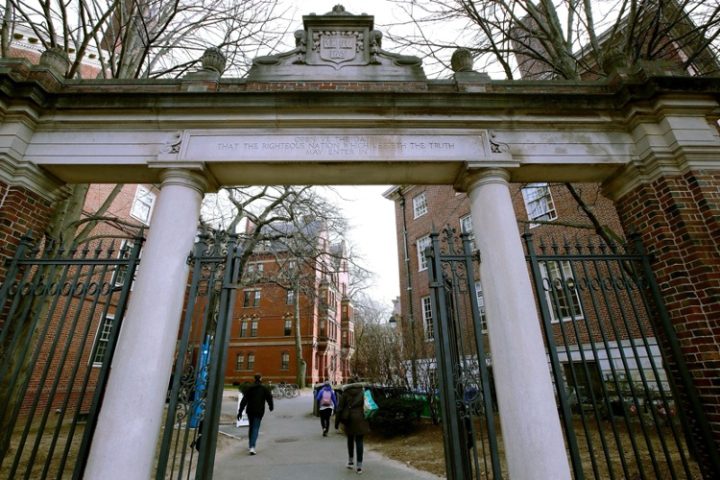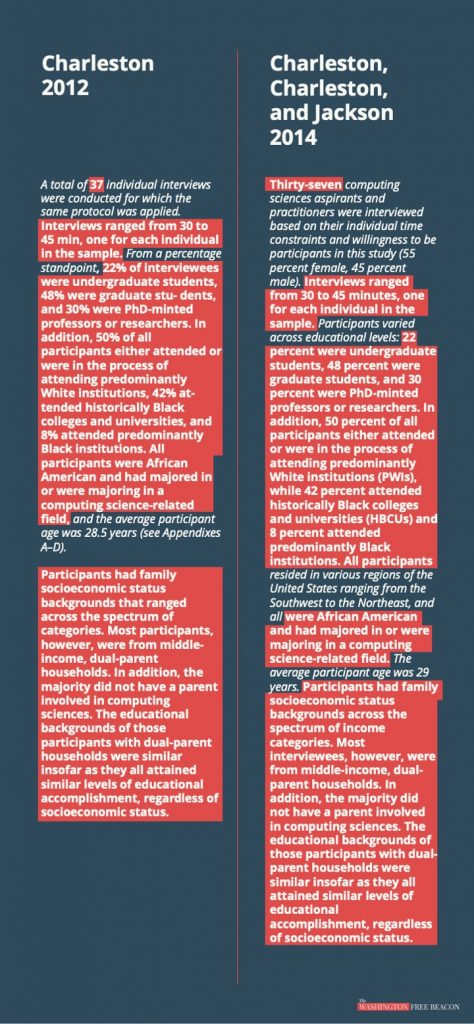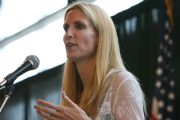
Harvard University is dealing with yet another plagiarism and academic fraud scandal in yet another of its diversity hires.
This time, the Washington Free-Beacon reported, citing another complaint to the university, the culprit is Sherri Ann Charleston, Harvard’s chief diversity and inclusion officer.
The charges against Charleston are more serious than those that helped jettison former university president Claudine Gay.
And plagiarism isn’t the only trouble the university faces with respect to possible academic fraud. A scientist whom the Harvard Crimson called a “data sleuth” uncovered fakery in research published by the Harvard’s Dana Farber Cancer Institute.
Major Plagiarism
The 37-page complaint alleges 40 plagiarized passages in Charleston’s doctoral dissertation for the University of Michigan in 2009, The Fruits of Citizenship: African Americans, Military Service, and the Cause of Cuba Libre, 1868-1920.
But Charleston seems to have been a more prodigious literary thief than Gay.
The “dissertation contains a lot of other scholars’ language verbatim without quotation marks,” the complaint alleges:
Parts of Charleston’s dissertation were published previously, word for word, by her advisor, Rebecca Scott, and others. Charleston will lift whole sentences and paragraphs from other scholars’ work without quotation marks, then add a correct reference somewhere in the footnote ending the long paragraph.
The theft from advisor Scott leads the complaint:
Charleston:
Anthony Leopold Gusman, a white attorney in New Orleans, had taken on the case of an African American man named Samuel Wright who had been sentenced to death for assault with intent to commit rape. Gusman decided to challenge Wright’s indictment by denying the legitimacy of the still unratified Louisiana Constitution of 1898; thus, challenging the legitimacy of the Jefferson Parish grand jury that had issued the indictment, arguing that the convening of a twelve member jury violated the prior Louisiana Constitution of 1879 which called for a sixteen member grand jury. The Circuit Court Judge, however, was not convinced and ruled against Gusman, clearing the way for Sam Wright to be executed.
On February 19, Gusman initiated an appeal to the U.S. Supreme Court.
Scott:
A. L. Gusman, a white attorney in New Orleans, had taken on the case of a man named Samuel Wright who had been sentenced to death for assault with intent to commit rape. Gusman decided to challenge Wright’s indictment by denying the legitimacy of the unratified Louisiana Constitution of 1898, and thus of the Jefferson Parish grand jury that had issued the indictment, because the convening of a twelve-member grand jury violated the prior Louisiana Constitution of 1879, which called for a sixteen-member grand jury. … Accepting the sheriff’s plea, and apparently characterizing portions of Gusman’s argument as a “political question” over which Congress alone had jurisdiction, the Circuit Court ruled in favor of Marrero on February 3, 1900, clearing the way for Wright to be executed.
On February 19, 1900, Gusman initiated an appeal to the U.S. Supreme Court.
Why the thesis advisor didn’t notice that Charleston plagiarized the advisor’s own work is a question for another day.
In any event, Charleston also ripped off three historians: Harvard’s Alejandro de la Fuente, New York University’s Ada Ferrer, and University of North Carolina’s Louis Pérez.
Outright Fraud
But plagiarism, and a lot of it, isn’t Charleston’s only academic crime. She collaborated in academic fraud with her husband, LaVar, on a peer-reviewed journal article in 2014.
The complaint alleges that “close to 20% of the 2014 paper was published before in a 2012 paper by LaVar Charleston in the Journal of Diversity in Higher Education, including much of the language used to describe the study, its methods, and its results.”
The complaint called the 2014 paper “substantially a reprint” of the 2012 paper.
“The description of the study participants is also the same across both papers, as are a number of long-form testimonies from participants treated as ‘data,’” the complaint alleges. As well, the two papers reported an identical answer from a study participant.

A plagiarism expert and two scholars told the Free Beacon that Charleston’s academic work is, as a practical matter, bogus.
Jonathan Bailey of the Plagiarism Today website explained the problem with Charleston’s using Scott, the thesis advisor. “Though the sources in those examples are cited” because Charleston used footnotes, “the text either needed to be quoted or properly paraphrased.”
Peter Wood, president of the conservative National Association of Scholars, said that the paper published in 2014, which mirrored the paper published in 2012, “appears to be entirely counterfeit. This is research fraud pure and simple.”
Said Steve McGuire, formerly of Villanova University, “Sherri Charleston appears to have used somebody else’s research without proper attribution.”
Amusingly, Charleston “served on the staff advisory committee that helped guide the university’s presidential search process that resulted in the selection of former Harvard president Claudine Gay in December 2022,” the Free Beacon reported, citing the Crimson,
The complaint was also filed with the University of Michigan, which awarded Charleston her doctorate, and the University of Wisconsin-Madison, where husband LaVar works.
Cancer Research Fraud
As for Harvard’s Dana Farber Cancer Institute, on January 22, it requested corrections and retractions to research papers, the Associated Press reported. The Crimson divulged the allegations.
A “data sleuth” called Sholto David “alleged DFCI President and CEO Laurie H. Glimcher ’72, Executive Vice President and COO William C. Hahn ’87, Senior Vice President for Experimental Medicine Irene M. Ghobrial, and Harvard Medical School professor Kenneth C. Anderson committed research misconduct across dozens of papers,” the Crimson reported:
David, who holds a doctoral degree in biology from Newcastle University, alleged that three papers authored by Glimcher, 12 by Hahn, 10 by Ghobrial, and 16 by Anderson contained “data forgery,” including five co-authored by both Anderson and Ghobrial. As is typical for scientific research, all of the papers referenced by David have several co-authors, though his post focused on the four DFCI researchers.
The papers, published between 1999 and 2017, most commonly have duplications of blots, bands, and plots within images, David alleged.
When the Harvard Corporation and Board of Overseers will clean house is unknown.



